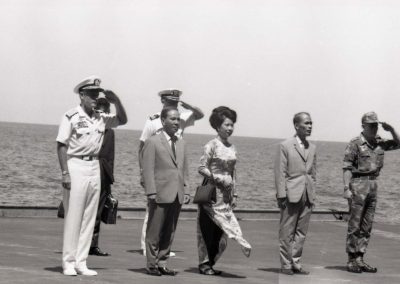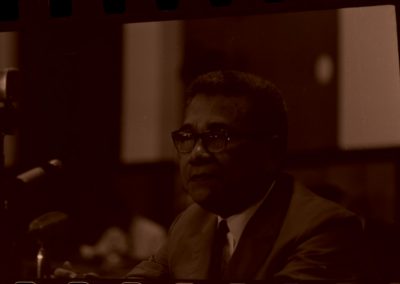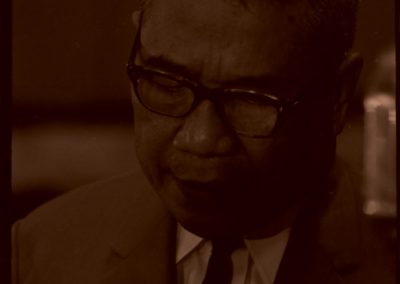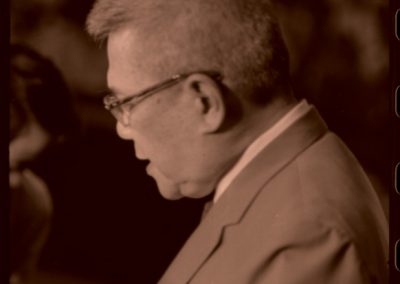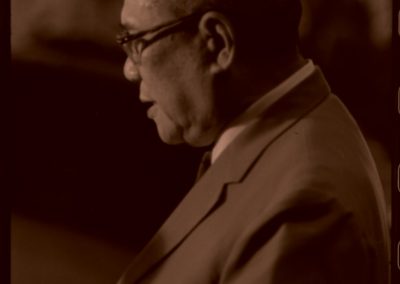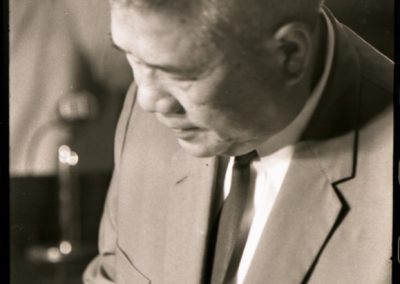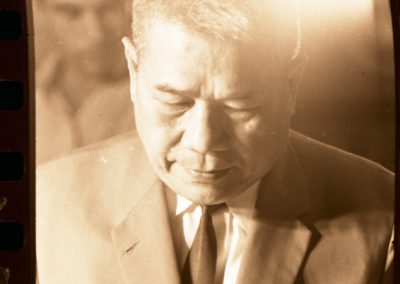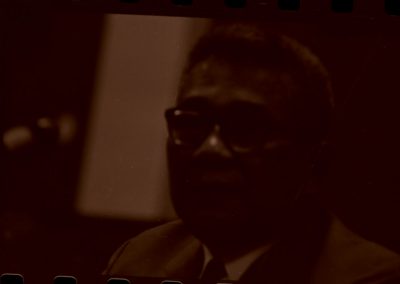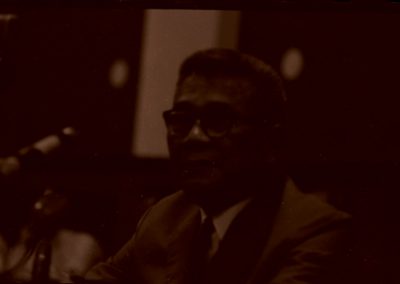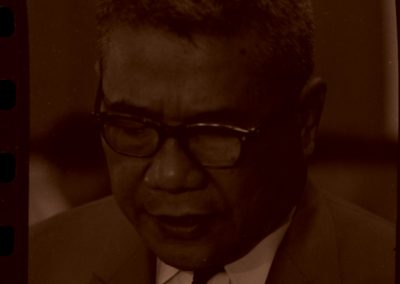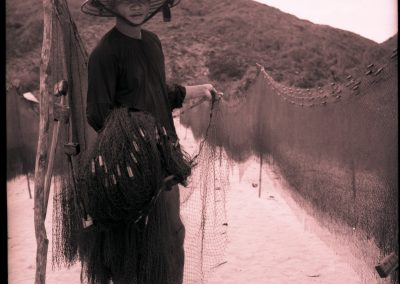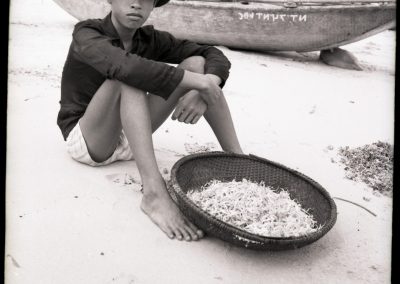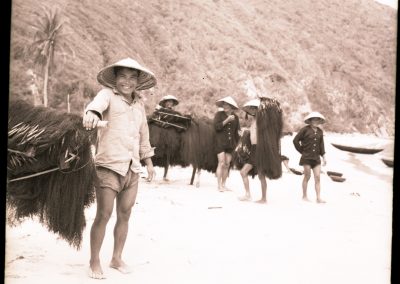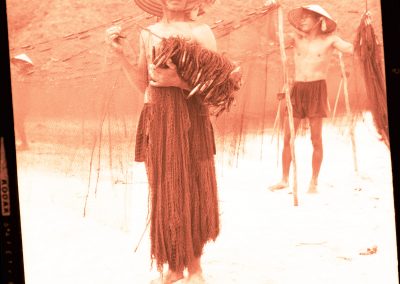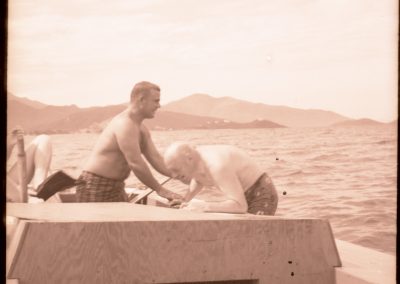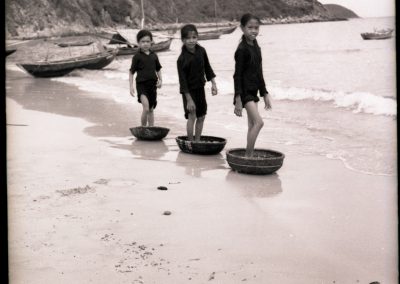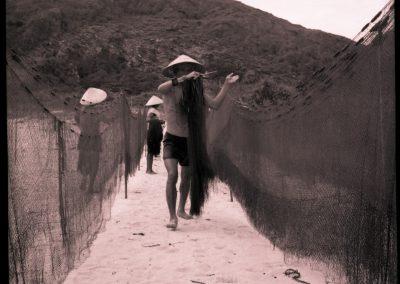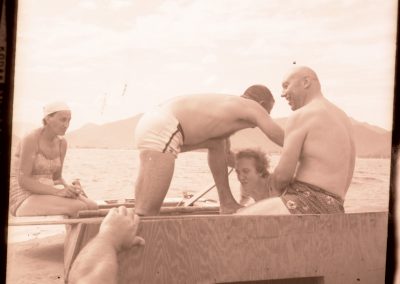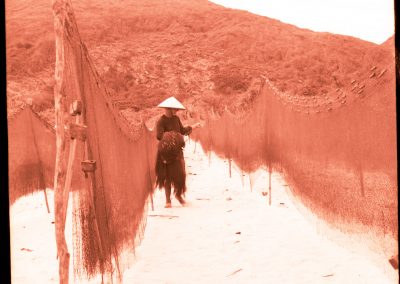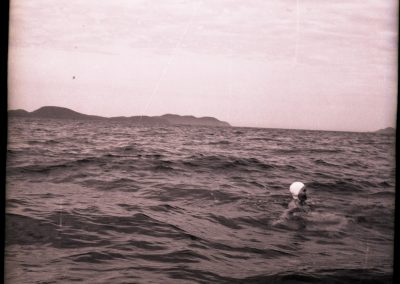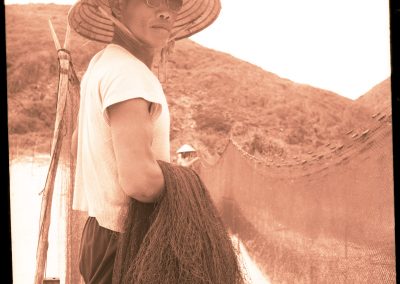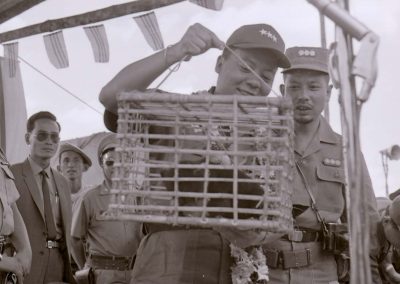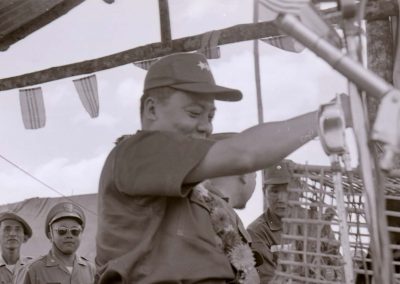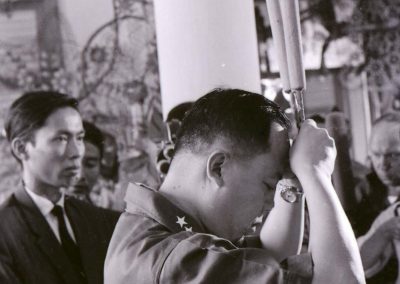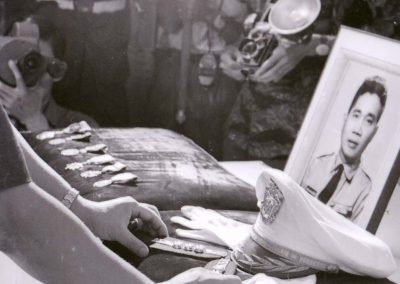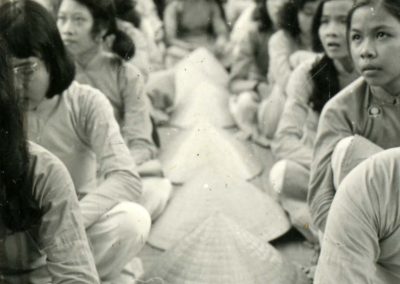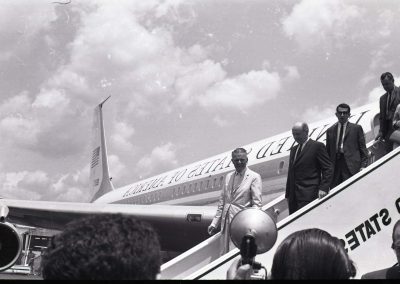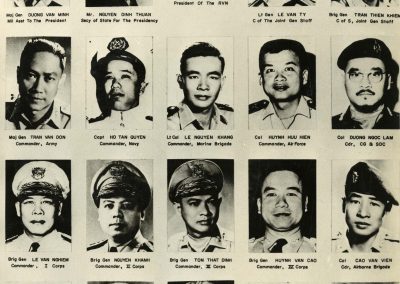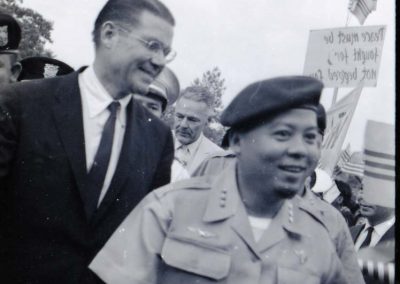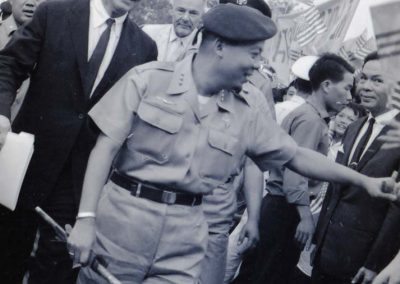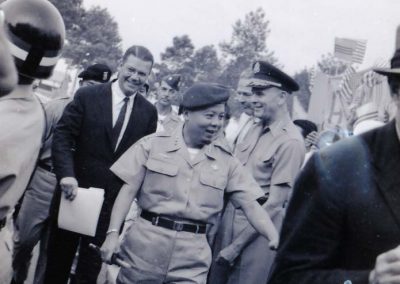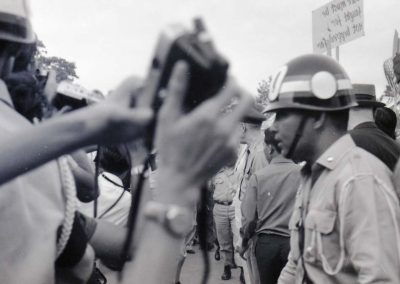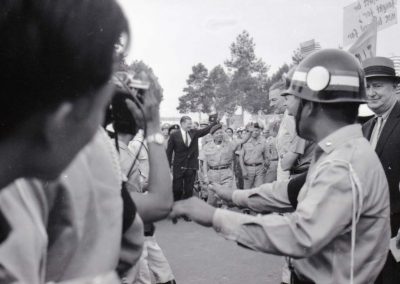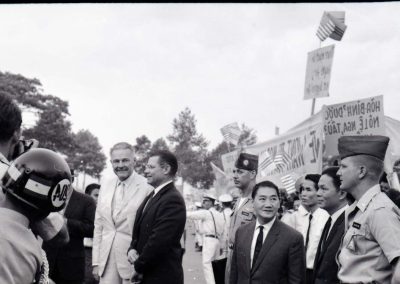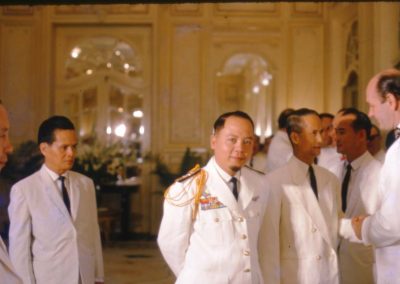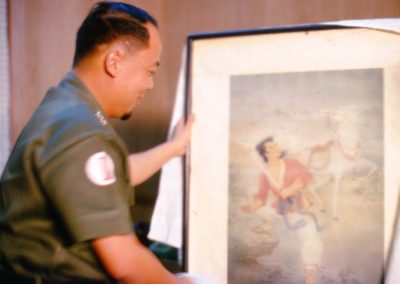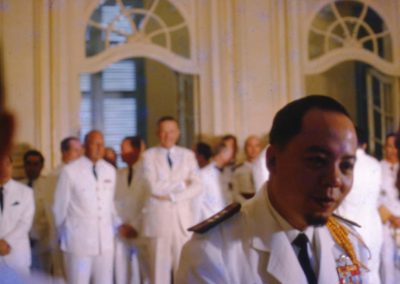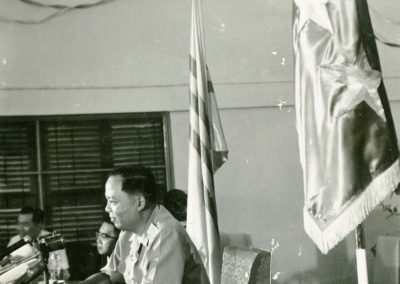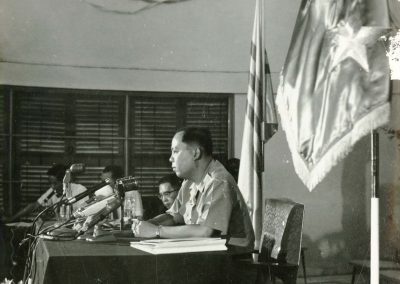Post-Ngo Dinh Diem Regime Photos
Khanh (1964)
Khanh on January 30, 1964, had launched a bloodless, internal coup against the military junta that just eighty-nine days earlier had overthrown Diem and his government. Khanh arrested the five top anti-Diem generals, ousted the civilian cabinet that they had installed, and empowered himself as prime minister and military strongman.
Khanh at Press Conference (363-02775)
Khanh at a press conference. He is holding his hands above his head.
McNamara (1965)
As then secretary of defense Robert McNamara, a key architect of Kennedy’s policy, wrote later, the Vietnam War was to become “among the bloodiest in all of human history.”
Vice President Humphrey (1967)
Vice President Hubert H. Humphrey visited 1st Infantry Division headquarters ad Di An on Saturday, February 12 as a part of his current tour of Vietnam. Accompanying the vice president were high-ranking military and civilian officials including Ambassador Averell Harriman and General W.C. Westmoreland.
Humphrey in Vietnam (363-02753)
U.S. Vice President Humphrey arrives in Vietnam for Presidential inauguration. Saigon – Vice President Hubert H. Humphrey led the official delegation that arrived in Saigon Oct. 29 to attend the inaugration cerremony of President Nguyen Van Thieu and Vice President Nguygen Coa Ky on Oct. 31. The U.S. party was met at Saigon’s Tan Son Nhut airport by Mr. Ky. U.S. Ambassador Ellsworth Bunker, Deputy Ambassador Eugene Locke, General W.C. Westmoreland and other top Vietnamese and American military and cilivian officials. The other official delegates representing President Johnson at the inaugration were Mr. William Randolph Hearst, Jr., Chairman of the Board, Heartst Corporation; and Mr. James A. Suffridge, President AFL/CIO Retail Clerke International Association.
Humphrey in Vietnam (363-02754)
U.S. Vice President Humphrey arrives in Vietnam for Presidential inauguration. Saigon – Vice President Hubert H. Humphrey led the official delegation that arrived in Saigon Oct. 29 to attend the inaugration cerremony of President Nguyen Van Thieu and Vice President Nguyen Coa Ky on Oct. 31. The U.S. party was met at Saigon’s Tan Son Nhut Airport by Mr. Ky. U.S. Ambassador Ellsworth Bunker, Deputy Ambassador Eguen Locke, General W.C. Westmoreland and other top Vietnamese and American military and civilian officials. The other official delegates representing President Johnson at the inauguration were Mr. William Randolph Hearst, Jr., Chairman of the Board, Hearst Corporation; and, Mr. James A. Suffridge, President AFL/CIO, Retial Clerks International Association.
Humphrey in Vietnam (363-02755)
U.S. Vice President Humphrey arrives in Vietnam for Presidential inauguration. Saigon – Vice President Hubert H. Humphrey led the official delegation that arrived in Saigon Oct. 29 to attend the inaugration cerremony of President Nguyen Van Thieu and Vice President Nguyen Coa Ky on Oct. 31. The U.S. party was met at Saigon’s Tan Son Nhut Airport by Mr. Ky, U.S. Ambassador Ellsworth Bunker, Deputy ambassador Eugene Locke, General W.C. Westmoreland and other top Vietnamese and American military and civilian officials. The other official delegates representing President Johnson at the inauguration were Mr. William Randolph Hearst, Jr., Chairman of the Board, Hearst Corporation; and Mr. James A. Suffridge, President, AFL/CIO Retail Clerks International Association.
Humphrey in Vietnam (363-02756)
U.S. Vice President Humphrey visits U.S. – Vietnamese Installations in Delta – Saigon – U.S. Vice President Hubert H. Humphrey (center) with U.S. Ambassador to Vietnam Ellsworth Bunker and General William C. Westmoreland, Commander, Military Assistance Command Vietnam (MACV) confer atop the new American Embassy in Saigon before departing by helicopter on a field trip, Oct. 30 to visit U.S. troops of the Riverine Force aboard the USS Benewah, and the Vietnamese National Training Center for Revolutionary Development at Vung Tau, a port city on the South China Sea. During his visit aboard the USS Benewah he presented Purple Heart medals to several wounded Americans.
Thieu (1968)
“The Armed Forces as a well-organized and best-disciplined strength will continue to assume the present leadership role until a stable democracy is built.”
Thieu’s Wife (363-02937)
Thieu’s wife walks aboard the 7th Fleet, soldiers are seen saluting around her.
Thieu’s Wife (363-02938)
Thieu’s wife walks aboard the 7th Fleet, soldiers are seen saluting around her.
Thieu Aboard 7th Fleet (363-02939)
Thieu arrives aboard the 7th Fleet, soldiers are seen surrounding him
Thieu Aboard 7th Fleet (363-02940)
Thieu arrives aboard the 7th Fleet, soldiers are seen surrounding him
Thieu Aboard 7th Fleet (363-02941)
Thieu arrives aboard the 7th Fleet, his wife appears to be at his side.
Thieu (363-02942)
A photograph of Thieu which appears to be printed over another negative of some sort of building in the background.
Huong (Undated)
“South Vietnam is not prepared for peace any more than it was prepared for war a decade ago,” one Vietnamese influential politician explained. And, as another added, “The question is whether Huong can unify the Vietnamese nationalists enough to prepare us for the luxury of peace.”
Huong (363-0419)
Original caption: “Huong.” Tran Van Huong fiddling with glasses. A second man can be seen behind him.
Fishermen (Undated)
With war, the problems of the peasant throughout Vietnam obviously are greatly multiplied. His fate of being in the middle and racked and torn.
Man with Bowl (363-01116)
A Vietnamese ma is sitting behind a bowl of crabs? A boat is seen in the background.
Vietnamese People with Netting (363-01117)
Several Vietnamese people are seen standing on a beach holding netting material.
Vietnamese People with Netting (363-01118)
A veitnamese man is holding netting another man is standing in the background and hanging netting on wooden stakes in the sand.
Vietnamese People with Netting (363-01122)
A Vietnamese person is carrying netting as they walk toward the camera – others seen in the background.
Vietnamese People with Netting (363-01133)
A woman holds netting as she walks down a path lined with it.
Khanh (Undated)
“A year ago yesterday, Maj. Gen. Nguyen Khanh in his first swift, silent coup d’etat entered the Prime Minister’s Office with three stars, a modest black goatee and a reputation for being an expert poker player. Today, he sports four stars, a Genghis Khan goatee plus moustache and the winner of an important round of political gambling. A year ago, he was the frontman Prime Minister for other generals and political rivals; today he is the behind-the-scenes strongman officially named only commander-in-chief of the Vietnamese Armed Forces and Chairman of the powerful Armed Forces Council, which has now officially become a super-government making all key decisions in the anti-communist sphere of influence in Viet Nam.”
Khanh Holding Cage (363-02784)
Khanh appears to be holding some kind of animal in a small cage, other look on the background.
Khanh With Cage (363-02785)
Khanh appears to be looking at some kind of animal placed inside a cage, he appears to be grabbing the cage to hold.
Khanh at Funeral (363-02786)
Khanh attending a funeral. He is holding burning candles above his head.
Cabinet Members (363-02790)
Portraits of the cabinet members of the Republic of Vietnam under Diem. Members include Buig Gens Tran Thien Khiem and Nguyen Khanh.




















































